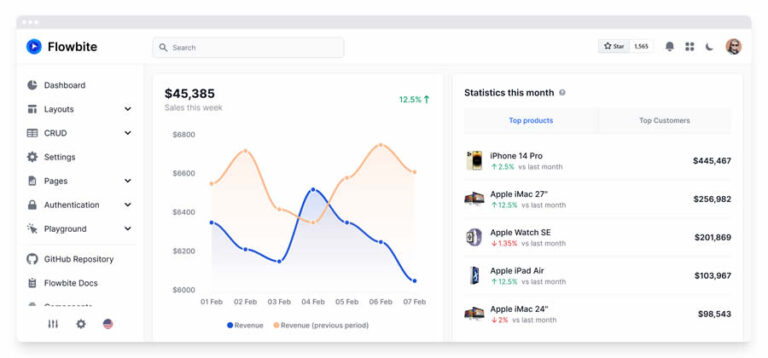
In the dynamic world of web development, PHP remains a stalwart language, powering a significant portion of the internet. This introduction to optimizing your PHP code aims to guide developers through efficient coding practices to enhance performance, reduce server load, and create a seamless experience for end-users. Whether you’re a novice eager to refine your coding skills or an experienced developer looking to polish your projects, the coming sections will provide valuable tips and techniques to optimize your PHP applications.
Understanding PHP Performance
PHP performance is a critical factor in the overall efficiency and responsiveness of web applications. At its core, performance optimization means streamlining the execution of PHP scripts to minimize resource consumption and maximize speed. This involves understanding how PHP processes scripts and identifying bottlenecks that slow down performance. Factors such as script execution time, memory usage, and database query efficiency directly impact the speed and reliability of a PHP application. By focusing on these aspects, developers can significantly improve the speed at which web pages load and data is processed, leading to a smoother, more compelling user experience.
Best Practices for Writing Efficient PHP Code
Writing efficient PHP code is an essential skill for developers looking to enhance the performance of their web applications. By adhering to a set of best practices, it’s possible to write code that not only runs faster but is also more readable and easier to maintain. Here are some key strategies for optimizing your PHP code:
Utilize Native Functions: Whenever possible, use PHP’s built-in functions. They are generally optimized for speed and provide a more straightforward approach to common coding tasks.
Minimize Use of Loops: Loops can significantly impact performance, especially in large datasets. Optimize your loops by minimizing the number of loop iterations and avoiding unnecessary computations within the loop.
Leverage Opcode Caching: Opcode caching can reduce PHP script execution time by storing precompiled script bytecode in shared memory. This eliminates the need for PHP to load and parse scripts on each request.
Optimize Database Queries: Efficient database interaction is crucial. Use indexed columns for queries, limit the data returned with the `SELECT` statement, and avoid using PHP to perform tasks that the database can handle directly.
Reduce External Calls: External calls, such as file system operations or API requests, can slow down your application. Cache results whenever possible and ensure external resources are reliable and fast.
Implementing these best practices can lead to remarkable improvements in the performance of PHP applications. Not only do these strategies reduce server load and processing time, but they also contribute to a more scalable and robust application, capable of handling increased user demand with ease.
Profiling PHP Code
Profiling is an essential procedure in optimizing PHP code for better performance. It involves measuring the runtime performance of a script and identifying bottlenecks that slow down execution. Proficient PHP consultants utilize various profiling tools to gather detailed insights into how a PHP application runs. These insights include time spent on specific functions, memory consumption, and the number of times functions are called. With this data, PHP consultants can pinpoint inefficiencies and optimize code, ensuring that the application runs smoothly and efficiently. This step not only enhances the user experience by reducing loading times but also helps in managing server resources more effectively, making profiling a critical phase in PHP application development.
Caching Strategies
Caching is one of the most effective strategies for enhancing the performance of PHP applications. It significantly reduces server workload by storing content in a temporary location, making it readily available for subsequent requests. This approach minimizes the necessity for repetitive database queries and computations, leading to faster response times and more efficient resource utilization. Effective caching requires careful strategy and implementation to match the specific requirements of the application.
Types of Caching
OPcache: Stores precompiled script bytecode in shared memory, reducing script execution times.
User Cache: Implemented through solutions like APCu or Redis, it allows for storing custom data, reducing database load.
Page Caching: Stores the output of dynamic pages, making them available as static content for faster delivery.
Implementing Caching in PHP
Configuration of OPcache in `php.ini` for optimal performance.
Use of caching libraries or extensions like APCu for user cache management.
Implementation of page caching through custom code or frameworks for static page generation.
Caching, when correctly implemented, can drastically improve the responsiveness of PHP applications. By selecting the appropriate caching techniques and tools, developers can ensure that their applications remain fast, reliable, and scalable, even under high traffic conditions.
Leveraging Modern PHP Features
In addition to caching, leveraging modern PHP features plays a crucial role in enhancing application performance and developer productivity. Features such as Type Declarations enable developers to write more predictable and robust code by specifying the expected type of variables, function return values, and arguments. Anonymous Classes offer a concise way to create objects for single-use purposes, streamlining code and reducing bloat. Meanwhile, the use of Traits allows for code reuse in single inheritance languages like PHP, facilitating the inclusion of methods in multiple classes. Incorporating these features not only improves the quality and maintainability of the code but also optimizes execution by allowing the PHP engine to make better optimization decisions. Understanding and applying these modern PHP features is essential for developers looking to create high-performing, scalable, and secure applications in today’s fast-paced development environments.
Conclusion
Optimizing PHP applications for maximum performance requires a multifaceted approach that involves a thorough understanding of both the fundamental and advanced features of PHP. Strategic caching mechanisms and the adoption of the latest PHP features are paramount in ensuring that applications are not only fast and efficient but also scalable and secure. Developers committed to continuous learning and adapting to the evolving PHP landscape can significantly enhance their applications’ performance, providing a superior user experience. This endeavor not only demands technical prowess but also a proactive mindset towards solving the unique challenges posed by web development today.
In case you have found a mistake in the text, please send a message to the author by selecting the mistake and pressing Ctrl-Enter.




